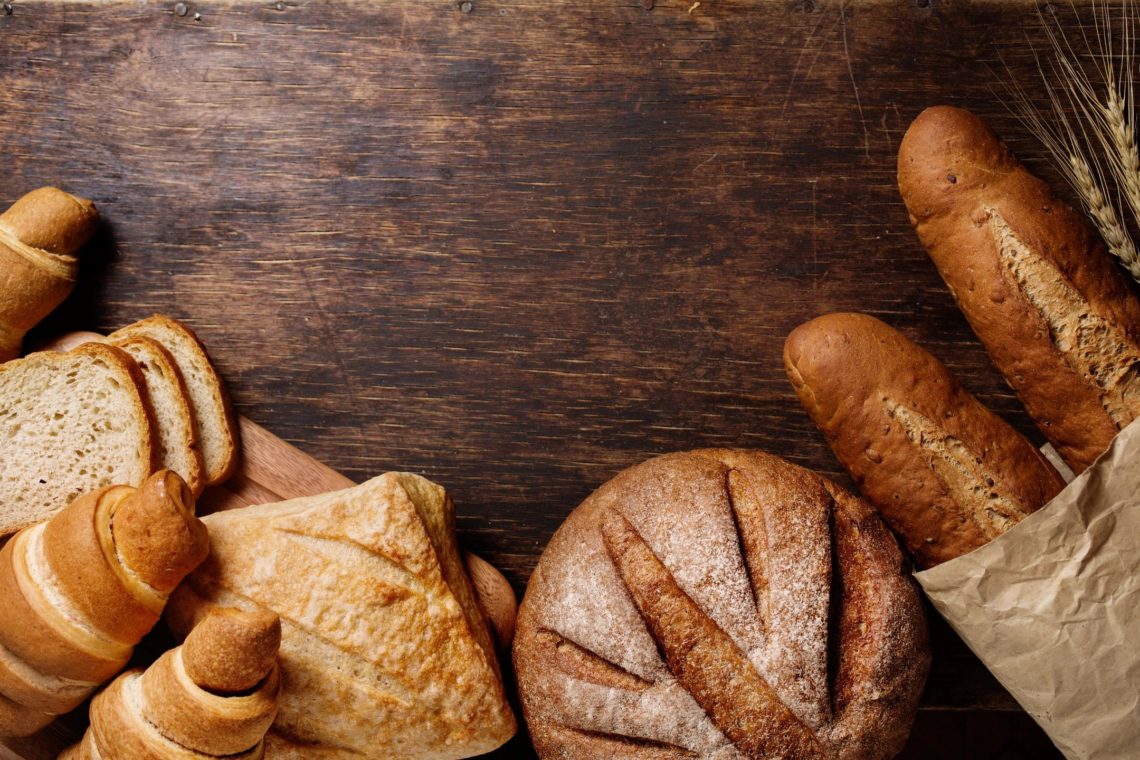Gluten /ˈɡlo͞otn/ : "a substance present in cereal grains, especially wheat, that is responsible for the elastic texture of dough. A mixture of two proteins, it causes illness in people with celiac disease."
source: dictionary.com
Gluten has been a hot topic in the world of health. With buzz words like "gluten intolerance," "gluten allergy," "celiac disease," and "gluten sensitivity," it can be very confusing as to what is a valid problem and what is a fad. To completely understand these things, it is first necessary to understand what gluten is.
When reading the above definition, it is a mixture of two proteins (prolamins and glutelins) that are found in grains such as wheat, rye, barley, and other cereal grains. It is responsible for the chewy "bite" associated with your favorite bread products.
Celiac Disease: The most severe on the spectrum of gluten issues. The body becomes inflamed and the gut lining is damaged by the body's own immune reaction when ingesting gluten. This diagnosis is made by biopsy of the intestine.
Gluten Intolerance: Symptoms similar to Celiac Disease develop when digesting gluten, but a formal diagnosis of Celiac has/is not made. Also known as "Non-Celiac Gluten Intolerance."
Gluten sensitivity: Mild form of gluten intolerance. There are symptoms caused by ingestion of gluten-containing products, but these symptoms resolve once gluten-containing foods are removed. Also known as "Non-Celiac Gluten Sensitivity."
Gluten allergy: Reaction to the gluten product itself, which causes more common "allergy" symptoms such as hives, wheezing, throat/skin itching, and the scariest: anaphylaxis. Also known as "wheat allergy."
Source: The Mayo Clinic
Now that we've clarified what gluten is and how each gluten condition is classified, why shouldn't we eat it? A common remark made by people that don't understand why gluten causes so many issues is that our parents grew up eating gluten and grains, so why is it such an issue now? Why wasn't gluten sensitivity/Celiac's disease more common "back in the day?" If you think about your genetics, you are made up of 50% of DNA from your mom and 50% of DNA from you father. The problem is that the DNA that came from your parents was exposed to a totally different kind of wheat (gluten) than the wheat we have now. Farmers have to produce the most product in the shortest amount of time, and to achieve this, things like hybridizing, adding pesticides, hormones, and other undesirables are done to ensure that they are getting the most yield from their crop. The downside is that our body then recognizes this product as being "foreign" and an attack is mounted against this "invader." This is when issues start to develop. The body tries to protect itself by becoming inflamed. For a better idea of this, imagine you roll your ankle while jogging. The ankle swells, fills with inflammatory fluid, becomes bruised, and it is painful to move. This is the body's way of protecting you from further damaging the area, discouraging you from walking on it, and mounting a defense to heal the injury. If you think of ingesting gluten as the mechanism of injury, imagine the swelling and inflammatory reaction created by your intestines and stomach in response to the foreign invader. Going back to our ankle analogy, imagine if you never let your ankle heal and you kept re-injuring the joint. You can expect that your ankle is going to be weak, non-functional, painful, and probably going to need to be replaced due to all the damage. The same type of reaction happens with your poor gut. The gut becomes leaky, non-functional, painful, and damaged.
Symptoms of gluten intolerance include:
Bloating
Diarrhea
Constipation
Depression
Headaches
Fatigue
Skin problems
Muscle and joint pain
Autoimmune diseases
Your gut is one of the first-line defenders against ills as well as the site of absorption of good nutrients from your diet to fuel your system, including your brain, with the things it needs to function adequately. If your gut lining is inflamed and damaged, it can no longer do it's job -- just like your poor, bruised, sprained ankle.
The other issue with gluten-containing foods is that they are also associated with high sugar foods. Think of those bread products: Doughnuts, pizza, bagels, pancakes, pasta and, yes, even macaroni and cheese! Carbohydrates (by definition) are sugar. And when ingested in mass quantities, can lead to things like diabetes, metabolic syndrome, obesity, mental illness, and cardiovascular disease.
I am by no means saying that everyone that has any of the aforementioned symptoms undeniably has gluten intolerance/sensitivity, but I do encourage you to do your own research, understand what you're ingesting, and think about this as a source of your symptoms if you identified with any of them listed above. Also, consider if this food is truly necessary in your diet and maybe do a trial of a few weeks off this substance and see if symptoms improve. What harm could it do? Food should be fuel, not make us more sick.





